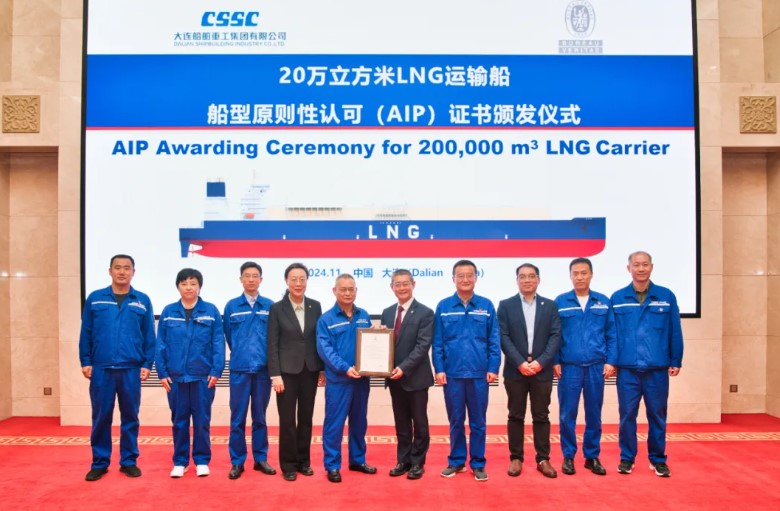This story requires a subscription
This includes a single user license.
According to a statement by DSIC issued on November 12, the two classification societies recently handed over the shipbuilder the approvals in principle.
DSIC said that with this new design, the shipbuilder expands its offering for large LNG carriers after obtaining orders for 175,000-cbm LNG vessels to meet customers’ differentiated needs.
With an overall length of about 300 meters and a design draft of 11.5 meters, the new vessel has the same ship-to-shore compatibility as the 175,000-cbm LNG carrier, ensuring efficient loading and unloading in most terminals around the world, it said.
Equipped with a dual-fuel low-speed engine propulsion system, the LNG carrier features four standard cargo tanks fitted with the GTT Mark III Flex Plus cargo containment system.
The vessel also features a reliquefaction system.
Compared with the conventional-size LNG carriers, this vessel has a larger LNG cargo tank capacity and better energy consumption per tonne-nautical mile, which is a “significant” advantage in long-distance voyages, DSIC said.
17 LNG carrier orders for DSIC
In March 2022, DSIC won its first large LNG carrier order for two ships from China Merchants Energy Shipping (CMES), a unit of China Merchants Group, and after that CMES added six more vessels.
Earlier this year, the shipbuilder launched the first CMES LNG carrier, and it recently launched the second LNG carrier.
Moreover, DSIC signed a deal in August last year to build two LNG carriers for a joint venture consisting of China Gas, Wah Kwong Maritime Transport, and CSSC Shipping.
The three firms ordered two more LNG carriers at DSIC in April this year.
In September this year, China’s Cosco Shipping Energy Transportation and DSIC signed a shipbuilding deal for two 175,000-cbm LNG carriers.
The vessels will be equipped with WinGD dual-fuel engines with integrated ICER system, and GTT’s Mark III Flex membrane containment system.
DSIC is already constructing three 175,000-cbm LNG carriers with the same specifications for a joint venture consisting of units of Cosco Shipping Energy Transportation and Sinopec under a deal signed in August last year.

